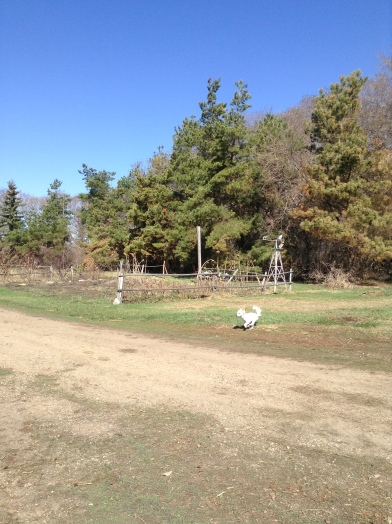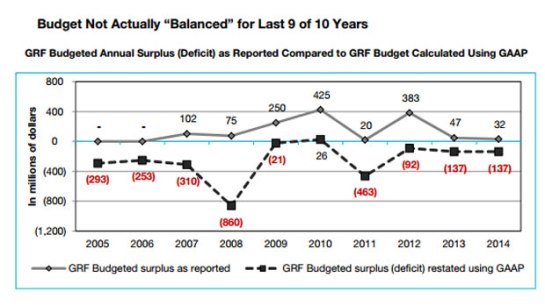
For Christmas, I received an iPad Mini.
It’s both the best and worst gift I’ve ever received.
My iPad has become my best friend, and I feel lost without it.
It’s a MACHINE.
In the fall, when I was in sensory overload, my online consumption was pretty limited. I couldn’t stand being in front of a screen for hours at a time. And I LOVED it because I felt in control of my need to compulsively check my Facebook account, even if that control had actually been wrested away from me by my anxiety.
Regardless, I still felt connected to the world, and I realized that life indeed could go on without a constant WiFi/3G connection.
Then I got the iPad. Ever since, my Internet use has skyrocketed to new levels.
Needless to say, I was intrigued to read this piece by Paul Miller, entitled “I’m still here: back online after a year without the Internet.” I find it difficult to go 12 hours without checking my email, so I can’t imagine going a year without Facebook, etc.
These quotes sum up the gist of the article:
I was wrong.
One year ago I left the internet. I thought it was making me unproductive. I thought it lacked meaning. I thought it was “corrupting my soul.”
It’s a been a year now since I “surfed the web” or “checked my email” or “liked” anything with a figurative rather than literal thumbs up. I’ve managed to stay disconnected, just like I planned. I’m internet free.
And now I’m supposed to tell you how it solved all my problems. I’m supposed to be enlightened. I’m supposed to be more “real,” now. More perfect.
But instead it’s 8PM and I just woke up. I slept all day, woke with eight voicemails on my phone from friends and coworkers. I went to my coffee shop to consume dinner, the Knicks game, my two newspapers, and a copy of The New Yorker. And now I’m watching Toy Story while I glance occasionally at the blinking cursor in this text document, willing it to write itself, willing it to generate the epiphanies my life has failed to produce.
I didn’t want to meet this Paul at the tail end of my yearlong journey.
…
What I do know is that I can’t blame the internet, or any circumstance, for my problems. I have many of the same priorities I had before I left the internet: family, friends, work, learning. And I have no guarantee I’ll stick with them when I get back on the internet — I probably won’t, to be honest. But at least I’ll know that it’s not the internet’s fault. I’ll know who’s responsible, and who can fix it.
It’s depressing. I’ve often thought the same thing: if I could just unplug from the Internet, I’d solve all of my problems. But the problem isn’t the Internet; the problem is me.
 A couple of weeks ago I read Nicholas Carr’s The Shallows: What the Internet is Doing to Our Brains. It’s an interesting account of how technology has changed our brains and our ability to access information throughout history. It begins with the introduction of writing, through the discovery of the book, then Gutenberg’s printing press and onward to our current Internet-infested lives. It’s a stunning revolution when you think about it. Carr points out how our brains have changed with each successive technological leap; how we’ve adapted and evolved to the influx of new information. My reading of Carr is that he seems confident that we will be able to do so again in this new technology age, but that it will take some time. Plus, we need to start controlling technology rather than letting it control us.
A couple of weeks ago I read Nicholas Carr’s The Shallows: What the Internet is Doing to Our Brains. It’s an interesting account of how technology has changed our brains and our ability to access information throughout history. It begins with the introduction of writing, through the discovery of the book, then Gutenberg’s printing press and onward to our current Internet-infested lives. It’s a stunning revolution when you think about it. Carr points out how our brains have changed with each successive technological leap; how we’ve adapted and evolved to the influx of new information. My reading of Carr is that he seems confident that we will be able to do so again in this new technology age, but that it will take some time. Plus, we need to start controlling technology rather than letting it control us.
The book is a bit technical at times (like when he describes exactly how our neurons fire), but it’s a thorough examination of how we’ve come to this point.
Carr ‘s analysis substantiates pretty much everything we’ve suspected about the Internet: it has decreased our attention spans, it has allowed us to stop exercising our memory muscles, and that it causes a lot of groupthink rather than engaging us in more critical thinking. And that’s to say nothing of the social and societal consequences of all of this.
But that’s not to say that the Internet is bad in and of itself. Like anything, moderation is the key. Yet is moderation possible when society is increasingly being built with instantaneous communication in mind? How can we unplug when we’re expected to have our cell phones on at all times, when we have to sort through mountains of email or information to find an answer, when our friends expect us to ‘Like’ their status updates on Facebook, or when social media management is a seeming requirement of everyday life? It’s tough.
When pervasive Internet and email use is a given in nearly every job these days, it’s up to us to ensure that our personal lives don’t end up the same way. For awhile, I managed to stop all online media consumption after 7 PM. I also tried to stay away from my cell phone and didn’t watch TV. I tried to take a ‘technology Sabbath,’ but wasn’t terribly successful. Why? Mostly because I didn’t know what else to do without my iPad in hand. And I think that’s the problem: we don’t know how to relax anymore. We don’t know how to be bored. We don’t know how to sit in the silence and be still. We only know how to be plugged in.
For me, that’s the real problem with the Internet. It makes me feel like I’m constantly missing out on something if I don’t have access to my Google Reader. It makes me think that I need to be connected when I really don’t. It doesn’t let me relax; it’s addicting. But it’s up to me to decide how I use the Internet, at least when I’m not at work.
I’m starting to think that moderating my Internet use is akin to exercise and healthy eating: I know it’s good for me and that I’ll feel healthier in the long run, but society is built for convenience and instant gratification so I have to make a conscious choice everyday to do what’s best for me.
But that feels like a lot of work. Maybe I’ll just check my Facebook account instead.









 A couple of weeks ago I read Nicholas Carr’s The Shallows: What the Internet is Doing to Our Brains. It’s an interesting account of how technology has changed our brains and our ability to access information throughout history. It begins with the introduction of writing, through the discovery of the book, then Gutenberg’s printing press and onward to our current Internet-infested lives. It’s a stunning revolution when you think about it. Carr points out how our brains have changed with each successive technological leap; how we’ve adapted and evolved to the influx of new information. My reading of Carr is that he seems confident that we will be able to do so again in this new technology age, but that it will take some time. Plus, we need to start controlling technology rather than letting it control us.
A couple of weeks ago I read Nicholas Carr’s The Shallows: What the Internet is Doing to Our Brains. It’s an interesting account of how technology has changed our brains and our ability to access information throughout history. It begins with the introduction of writing, through the discovery of the book, then Gutenberg’s printing press and onward to our current Internet-infested lives. It’s a stunning revolution when you think about it. Carr points out how our brains have changed with each successive technological leap; how we’ve adapted and evolved to the influx of new information. My reading of Carr is that he seems confident that we will be able to do so again in this new technology age, but that it will take some time. Plus, we need to start controlling technology rather than letting it control us.








